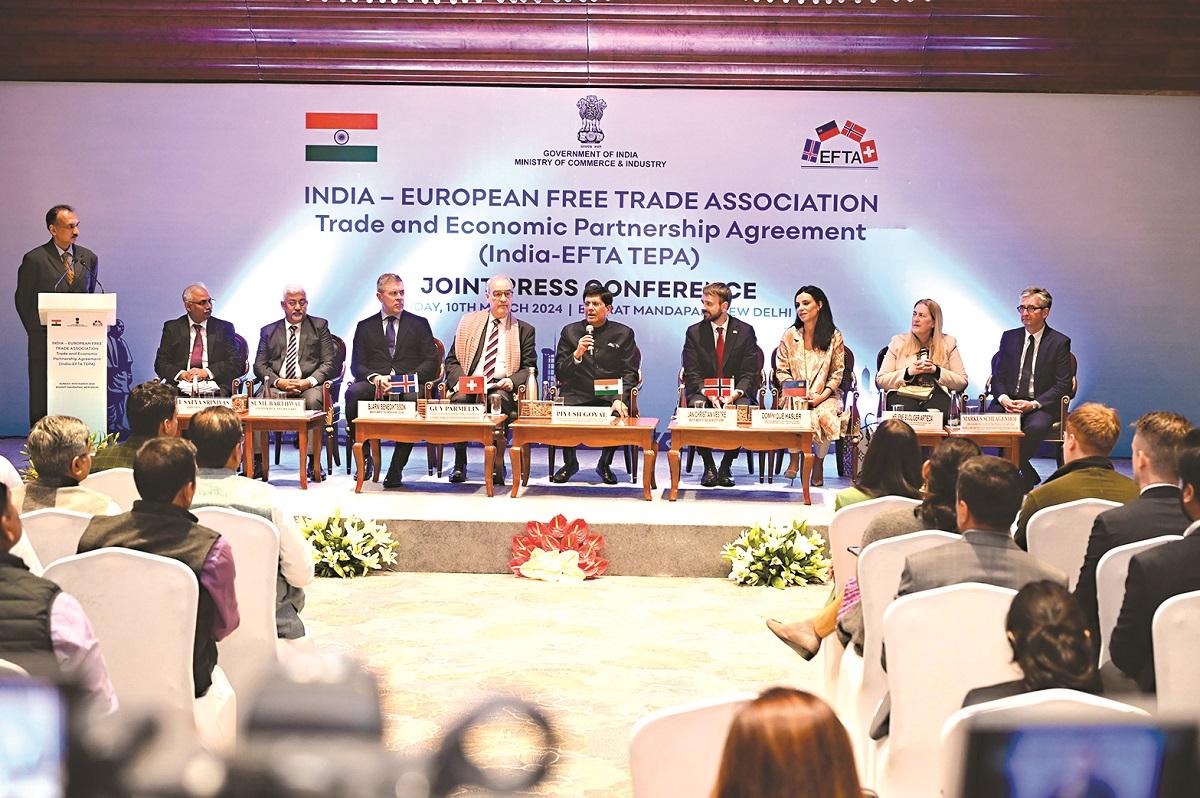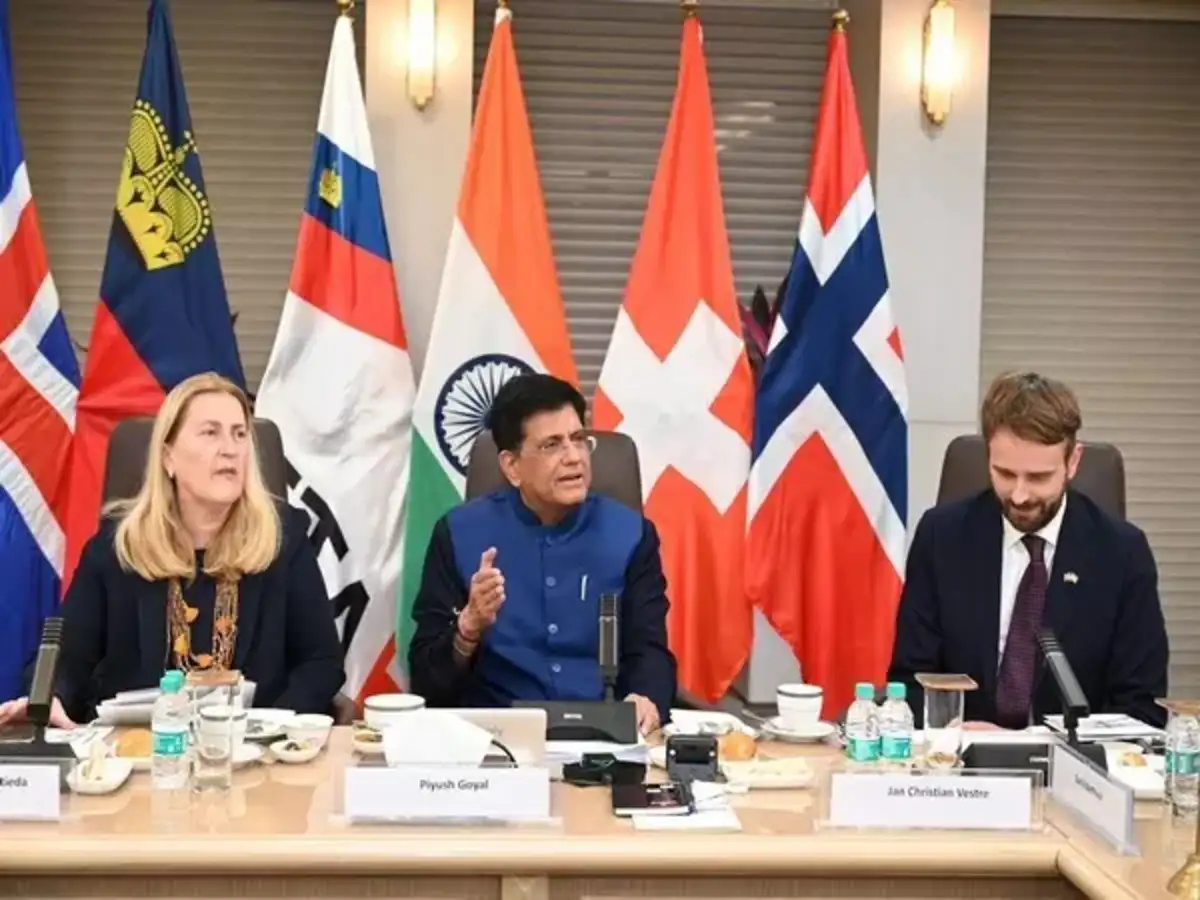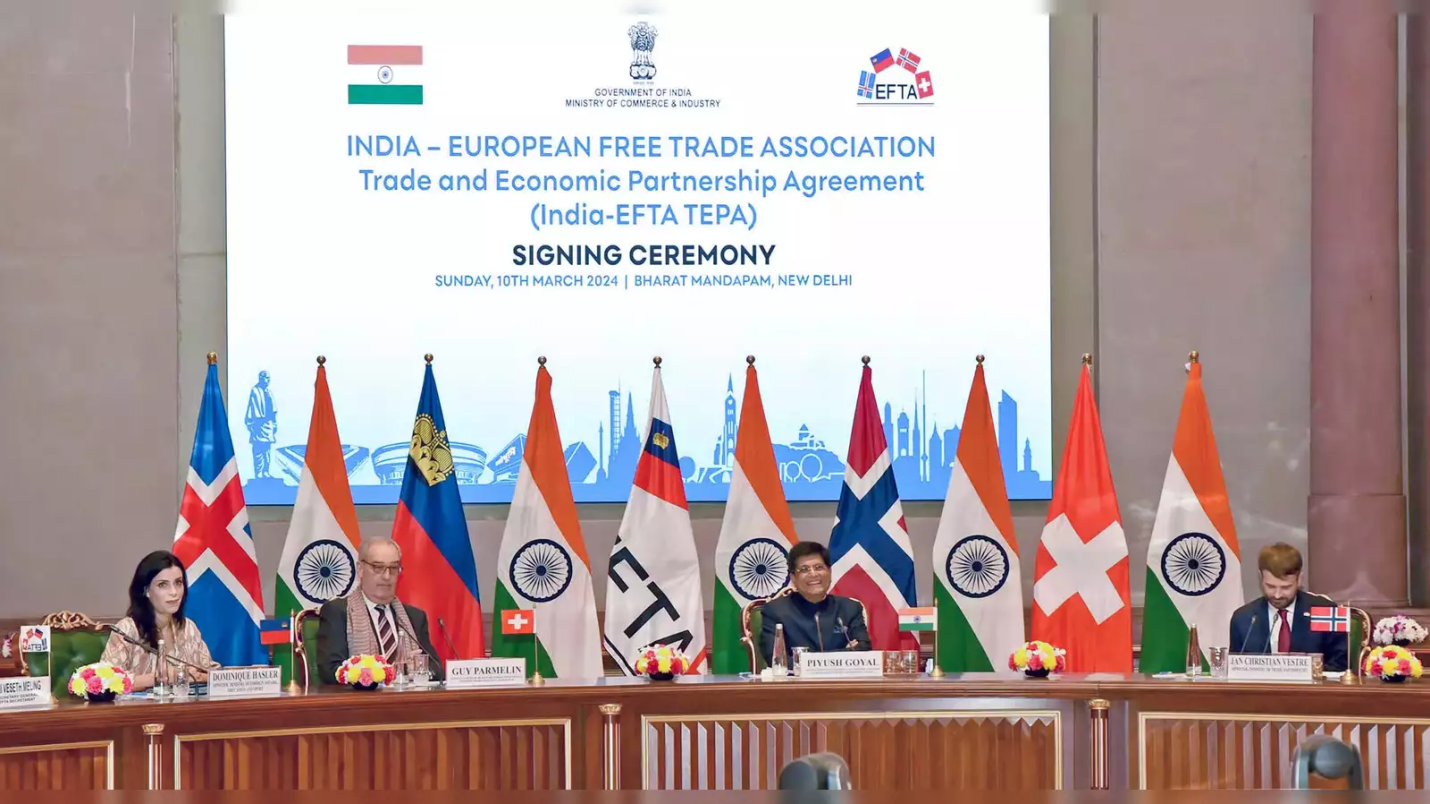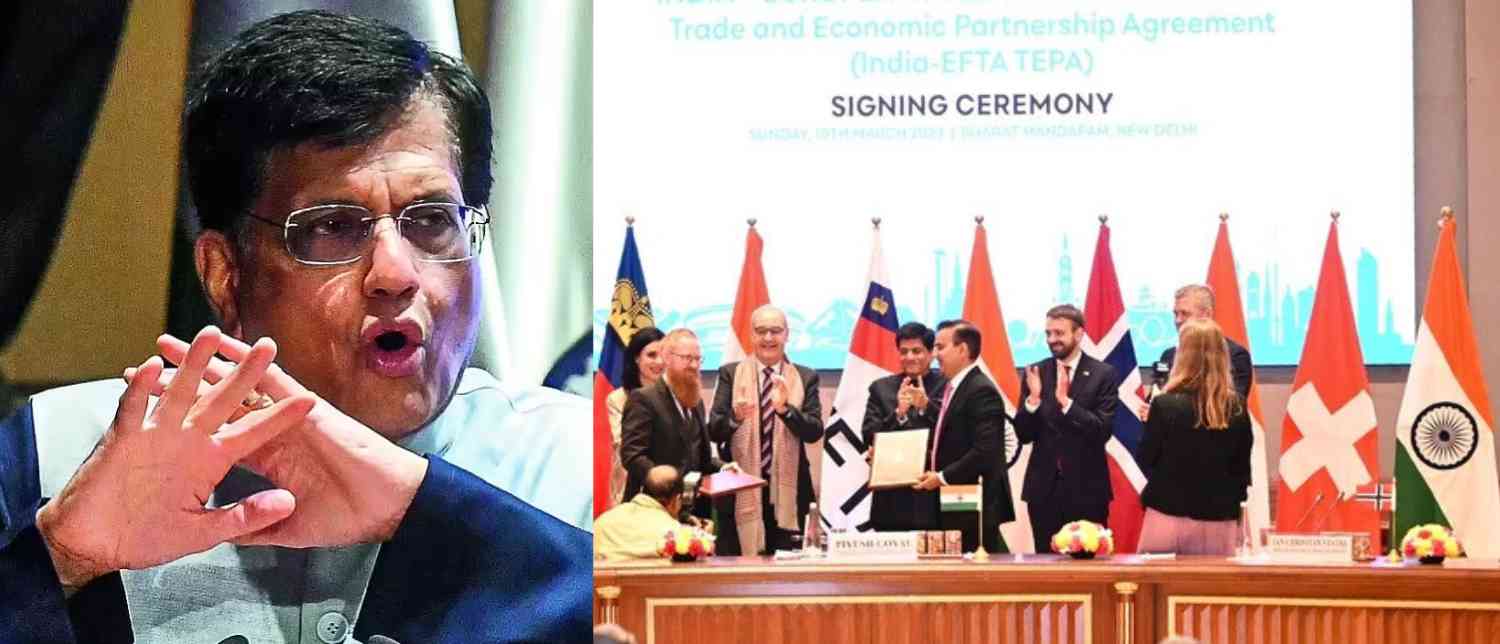India is set to operationalise its historic Trade and Economic Partnership Agreement (TEPA) with the European Free Trade Association (EFTA) countries on October 1, 2025, after an 18-month delay. This marks the first time India has a trade pact with a European bloc, which includes Iceland, Liechtenstein, Norway, and Switzerland. The government will host a high-profile event at Bharat Mandapam in New Delhi, with Commerce and Industry Minister Piyush Goyal and key ministers from the EFTA nations expected to attend alongside officials and industry leaders.

The prolonged wait for the deal's implementation was due to procedural approvals needed in the member countries. The pact’s launch aims not just to celebrate the agreement but to ensure industry stakeholders understand its benefits and are positioned to take full advantage.
The TEPA is unique for India in several ways. It is India's first trade agreement with a European bloc and combines market access commitments with a significant investment pledge from EFTA countries amounting to $100 billion over 15 years. This investment is expected to create up to one million jobs in sectors such as manufacturing, green energy, pharmaceuticals, and information technology.
India will reduce tariffs on about 80-85% of goods imported from EFTA countries in phases over 3 to 10 years, covering products such as luxury chocolates, watches, and electronics, making these goods cheaper for Indian consumers. In return, Indian exports like textiles, pharmaceuticals, chemicals, and auto components will gain easier and duty-free access to EFTA markets. However, certain sectors like agriculture and dairy are excluded from tariff cuts to protect domestic interests.

This agreement is expected to deepen India's economic integration with high-income European economies, diversifying its export destinations. Switzerland already stands as India's largest EFTA trade partner despite a trade deficit, and the pact is expected to boost bilateral trade further.
From an economic standpoint, the agreement provides India with a major opportunity to attract foreign direct investment and enhance its manufacturing and services sectors through improved market access and supply chain integration. Streamlined trade logistics and harmonised standards will help India embed itself more firmly in European supply chains, especially in specialties like clean technology and pharmaceuticals.
Strategically, this deal broadens India’s global trade relations by linking it more closely to advanced European economies. It reflects India’s rising stature in global economic diplomacy and its efforts to balance growth, job creation, and technological advancement. The timing of the launch coincides with India’s transformation into the world’s fourth largest economy, aiming to be the third largest in the near future under the leadership of Prime Minister Narendra Modi.

While the deal promises several benefits, some caution remains around the adjustment period for Indian industries exposed to increased competition from European goods. However, protective provisions for sensitive sectors and the significant investment commitment are designed to cushion the impact and promote sustainable growth. The pact also includes provisions for fair trade, intellectual property rights, environmental protection, and technology transfer.
In conclusion, the India-EFTA Trade and Economic Partnership Agreement represents a major milestone in India's trade policy, opening new avenues for economic cooperation with Europe. Its launch signals a new phase in India’s engagement with global markets, blending trade liberalisation with job creation and investment inflows. The success of this agreement will depend on effective implementation and the ability of businesses to leverage new opportunities arising from this pact.
With inputs from agencies
Image Source: Multiple agencies
© Copyright 2025. All Rights Reserved. Powered by Vygr Media.

























